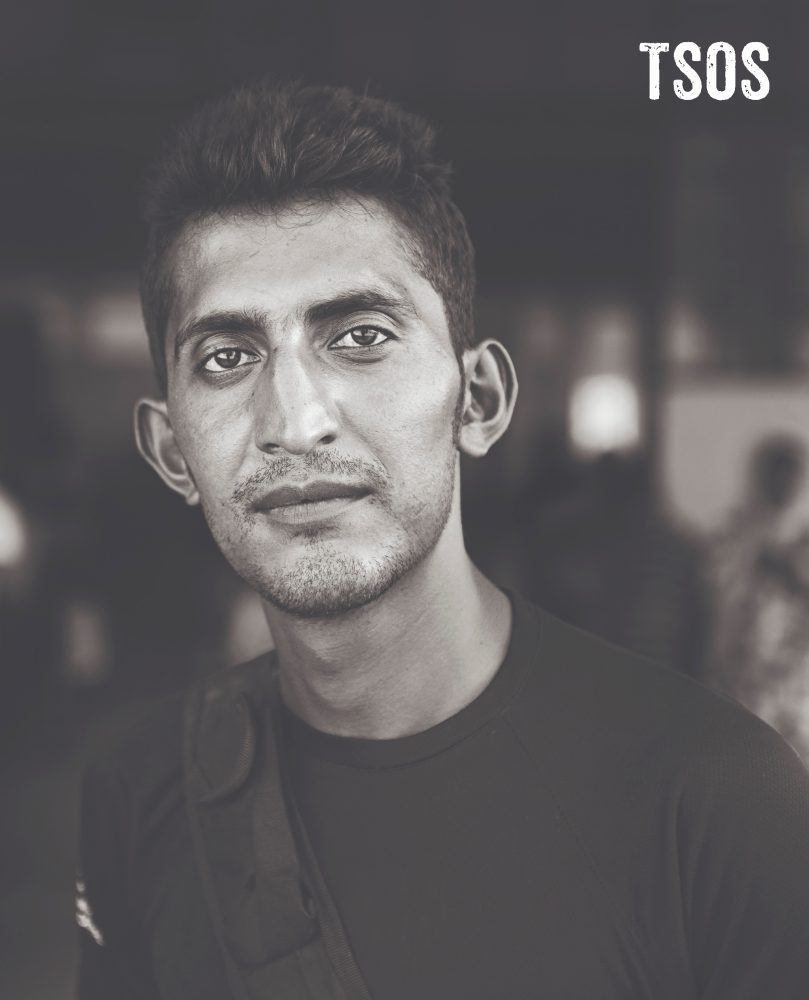Jalil
Jalil was 23 years old he drowned last month in Greece

Jalil was 23 years old when he drowned last month in Greece. I got to know him during our three days in the refugee camp where he and a few hundred other people were waiting for any news that would help them transition to a normal life. He was cheerful, extremely intelligent, and full of energy.
He was a journalist in Afghanistan when he received a death threat from the Taliban. His family decided that he should flee the country. Because smugglers charge about 10,000 Euros for the trip from Turkey to Germany, his mother and sister decided that Jalil should use all of their money and go alone. They decided it was safer for them to stay than it was for him. They planned on coming as soon as Jalil was secure and able to earn some money in Europe.
It wasn’t safe at the camp where he landed in Moria, Lesvos. He said fights broke out in the camp nearly every night. So, he found hole in the fence, snuck through it and ran as fast as he could. Jalil was a trained runner. He was once on the national track team of Afghanistan and was able to outrun the police. He ran to the port and jumped on a ship as it was leaving. After arriving in mainland Greece he attempted to leave Greece and enter other countries in Europe ten times. He was caught by Greek police, Serbian police, and Bulgarian police. He told me that he would try 40 more times, and wouldn’t stop until he achieved his goal.
“God told me,” he said in an intense whisper, “you decide what you want to do, and I’ll help you do it. I decided that I wouldn’t stop until I leave Greece, and I know that I’ll get out of here without having to return to Afghanistan.”

Jalil described how many of the other refugees used all of their money to reach Greece, but now are stuck in camps and can’t do anything to progress. They want to work, they want to support their families, but they are stuck waiting with little hope of progress. He said that Syrians are always the first to be accepted into the rest of Europe, because Syria is at war.
“Is Afghanistan safe?” he emphasized, “People are dying from bomb attacks; how can we say that Afghanistan is safe?”
“How can we stay in Greece? There are so many people who have lost everything, and there is no work for any of us. We need to work to support our families. In Afghanistan I had everything, but I lost it. I didn’t come here to enjoy Greece, I came here for my safety. But we learned that we’re not safe here, either.”
“I don’t think we have any future here in Greece, but I know that I’ll die if I stay in Afghanistan.”
“We’re not animals and we’re not criminals. We are humans. We thought there were human rights in Europe, and that’s why we came.”
[Jalil’s name has been changed to protect the identity of his family who are unsafe in Afghanistan.]
Our team members obtain informed consent from each individual before an interview takes place. Individuals dictate where their stories may be shared and what personal information they wish to keep private. In situations where the individual is at risk and/or wishes to remain anonymous, alias names are used and other identifying information is removed from interviews immediately after they are received by TSOS. We have also committed not to use refugee images or stories for fundraising purposes without explicit permission. Our top priority is to protect and honor the wishes of our interview subjects.